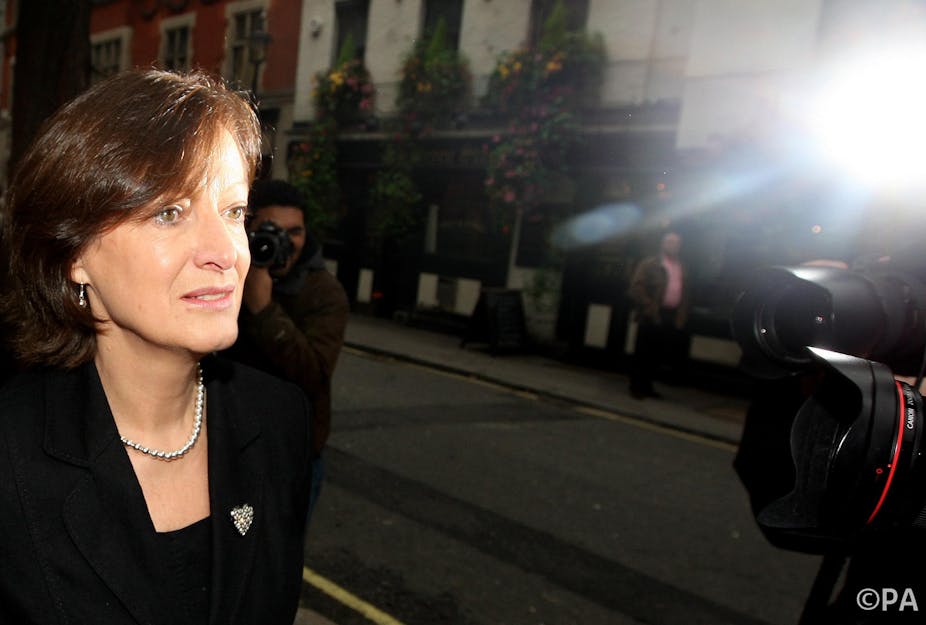Child protection social workers appear in the media for all the wrong reasons. Most of the time, after a child abuse inquiry, they’re blamed for not doing enough or for acting too hastily and removing children without real cause. The pressure leaves many social workers feeling they’re damned if they do, damned if they don’t.
I used to work in frontline social work. Over the years I became increasingly paranoid about the decisions I made and started to feel I was focusing less on the families I was working with and more on ticking all the boxes. I became overly concerned with what the organisation thought about the way I practised than the needs of the child and my main priority seemed to be ensuring I would never be blamed for making the “wrong” decision.
It’s a common experience. An MPs report into the state of social care is being published today in response to serious concerns raised by social workers about difficult conditions, low status and the impact this has on vulnerable people in their care.
Similar dilemmas, diverse reaction
The professional dilemmas facing social workers in different countries aren’t always that different – a child who is being abused by a parent, for example, can be found in any number of places. But the systems in which they work and the way their work is viewed is hugely diverse – something I have since discovered researching different cultural factors that affect how social workers see themselves and their jobs.
In the late 1990s Andrew Cooper and Rachel Hetherington carried out some revealing research into social work across Europe. They found social workers who were revered for the work they did – not just by society but by governments and the media. They found this led to social workers who felt confident about the way they practised and which enabled better relationships between the professional and the family.
More recently, I carried out my own research that compared social work in the north of England and Flanders, Belgium. Based on observations and interviews of professionals working in child protection facing similar everyday issues, I was able to see what kind of an impact blame culture was having.
Everyone loses
In the UK, it became apparent very early on that the fear of making mistakes and failing the public particularly affected those at the top of the organisation. People like Sharon Shoesmith, the former head of Haringey Council children’s services in London who was sacked over the Baby Peter scandal and has faced intense media scrutiny then and since.
But I found blame doesn’t stop at senior managers. When an organisation starts malfunctioning it only encourages everyone to start blaming each other. The blame culture that exists outside the profession only serves to create a blame culture within it. When a decision needs to be made, or one that has been made is questioned, no one wants to take responsibility for it for fear of what might happen in the future if its found to have been the wrong call.
In Belgium they did things differently. Accountability – accepting that mistakes happen and trying to see what can be learned from them instead of looking where to place blame – was an activity that was very much embedded in their culture. The space and environment that social workers worked in was also much more welcoming and offices were intentionally located above a school so that clients didn’t feel intimidated when they visited.
These differences made a huge impact. Social workers were proud of their profession and the families they worked with seemed much more comfortable with them. The professionals’ creativity and being able to reach out to clients seemed to have such a positive effect.
Hierarchy and power
In the UK, there are hierarchies, power imbalances and it’s all very oppressive. Not only are social workers demonised by the government, society and the media but service users are also stigmatised, with families having to enter fortress-like buildings to see their social worker. In some agencies they even have to talk to the receptionist from behind glass windows; not great if you want to tackle some people’s idea that it is an “us” and “them” situation.
It would also help if senior managers recognised the impact they had on staff further down the hierarchy. If those at the top were to address their own negative behaviour it could be vital in reducing the “pointing the finger” mentality social workers face.
The stories that we read in the news and see on TV can be harrowing. They make us angry, upset and make us question what we could have done. There are always things that could have been done differently. But pointing the finger hasn’t meant they don’t happen again. Instead we need to be more constructive about why they happened and strengthen “the system” that let these children down.
My findings demonstrate how societal and political ideologies can permeate organisations – to no-one’s benefit, least of all the children who need help from social workers. Uninformed politicians who have no professional experience of what social work is about do very little to help by persistently damning everything social workers do and stoking the flames. We can’t forget that they have their own agendas too.

